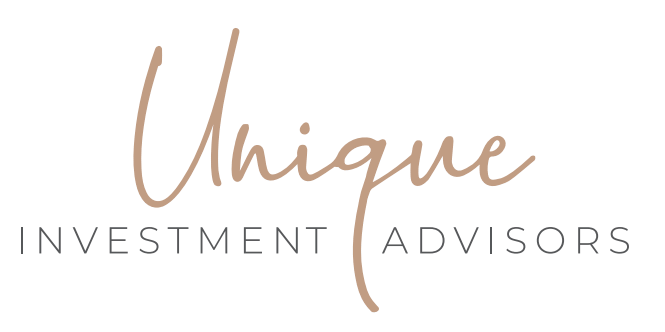
Insurance Planning Products
Insurance planning products are a vital component of financial planning. They safeguard the insured and their dependents against unforeseen events that could trigger financial ruin or hardship. With the dynamic nature of life, it is essential that individuals have some form of protection that would cater to their needs in case of unexpected occurrences.
There are several key benefits to insurance planning products. They provide financial security to the policyholder and their dependents. Life insurance, for example, will pay a lump sum to beneficiaries upon the policyholder’s death. This helps ease the financial burden on the family or dependents left behind. Similarly, disability insurance covers the policyholder’s income in case they are unable to work due to an injury or illness. The disability insurance payout helps shoulder the costs of medical bills as well as the day-to-day expenses of the policyholder.
Insurance strategies provide peace of mind. Knowing that you have an insurance policy in place can be a great psychological boost. Policyholders can focus on their daily living and work without worrying about how they would cope with an unexpected event.
Life products provide a hedge against inflation. As the cost of living increases, insurance policies provide a cushion against eroding purchasing power. The ‘cash value’ component of some life insurance policies can act as a savings account, as they accrue interest over time. In addition to providing coverage, life insurance policies can help build wealth, promoting long-term financial stability.
Life insurance policies may offer some tax benefits. While insurance premiums are not tax-deductible, the payout received from a life insurance policy loan is usually tax-free. This not only provides relief for the beneficiaries, but it also gives the policyholder more control over their assets. Disability insurance payouts are taxable, although policyholders may be able to claim related medical expenses as deductions. Insurance planning products therefore provide a strategic way to optimize tax planning.
Insurance planning is often useful in estate planning. They can be used to pay off debts, such as mortgages, student loans, or credit card balances. This leaves more of the policyholder’s assets to be bequeathed to their heirs. In addition, policies can be used as a means of equalizing the income distribution among beneficiaries. This is particularly important in cases where some beneficiaries may not have the same earning capacity as others. Life insurance can bridge this divide and ensure that all beneficiaries inherit assets proportionally.
There are a myriad of insurance planning products available. While there are insurance policies that offer coverage for a single event, such as life insurance, others provide a range of coverage that includes life insurance, disability insurance, and critical illness insurance. A professional financial planner can help determine an individual’s insurance requirements and recommend products that would best suit their needs.
Insurance strategies should be an essential part of your overall financial plan. They provide financial security and peace of mind, act as a hedge against inflation, offer tax benefits, and are useful in estate planning. Individuals who invest in insurance policies can better manage for unexpected events and ensure that their families or dependents are protected in case of any contingency.
A Look at the Most Popular Types of Life Insurance
Life insurance is an important aspect of financial planning. It provides peace of mind for individuals that their loved ones will be financially secure in the event of their untimely demise. However, there are various types of life insurance policies available in the market, and it can be confusing to choose one that best suits your needs. In the following, we will discuss five commonly available types of life insurance strategies – Term, Universal Life, Indexed Universal Life (IUL), Premium Finance Insurance, and Whole Life.
- Term Insurance: Term life insurance provides coverage for a specific time frame, ranging from 1 to 30 years. It is the most popular and affordable type of life insurance. The policyholder pays premiums for the duration of the policy, and in case of their death during the term, the beneficiary receives the death benefit. If the policyholder outlives the term, the policy can renew at much higher premiums or it expires.
- Universal Life Insurance: Universal life insurance is a permanent life insurance policy that offers flexibility in premium payments and death benefit. It combines a term insurance component with a savings account, also known as cash value. The policyholder can withdraw or borrow against the cash value, and the interest is tax-deferred. The interest earned is set by the insurance company and it varies.
- Indexed Universal Life (IUL): Similar to Universal Life Insurance, an IUL also offers a savings account with a death benefit. However, the savings component is tied to the stock market index, such as the S&P 500. Thus, the account value can fluctuate based on the stock market performance. IUL policies offer a guaranteed minimum interest rate on the cash value and have tax advantages. Consider Indexed Universal Life pros and cons when considering.
- Premium Finance Insurance: Premium Finance Insurance is a financial arrangement in which an individual or a company borrows money from a lender to pay for an insurance premium. This type of insurance allows individuals or companies to use leverage when funding their life policy. The lender will typically charge interest on the loan, which must be paid back over time. Premium finance insurance is most commonly used by businesses and high net worth individuals to finance expensive insurance policies.
- Whole Life Insurance: Whole life insurance is a permanent life insurance policy that provides lifetime coverage. It offers a fixed premium, cash value accumulation, tax-deferred growth, and a guaranteed death benefit. The premium payment is higher than a term insurance policy, and the policyholder can borrow against the cash value, but it may affect the death benefit.
To sum it up, life insurance is essential, and the type of policy one chooses depends on their individual needs. Term life insurance is suitable for those seeking affordable coverage for a specific period, while permanent life insurance policies offer a lifetime of coverage with savings components. It is essential to consult with a financial advisor to determine the best policy based on your goals, financial situation, and needs.
Insurance products are offered through Unique Business Planning and not Unique Investment Advisors.
“Planning is bringing the future into the present so that you can do something about it now.”
Alan Lakein















